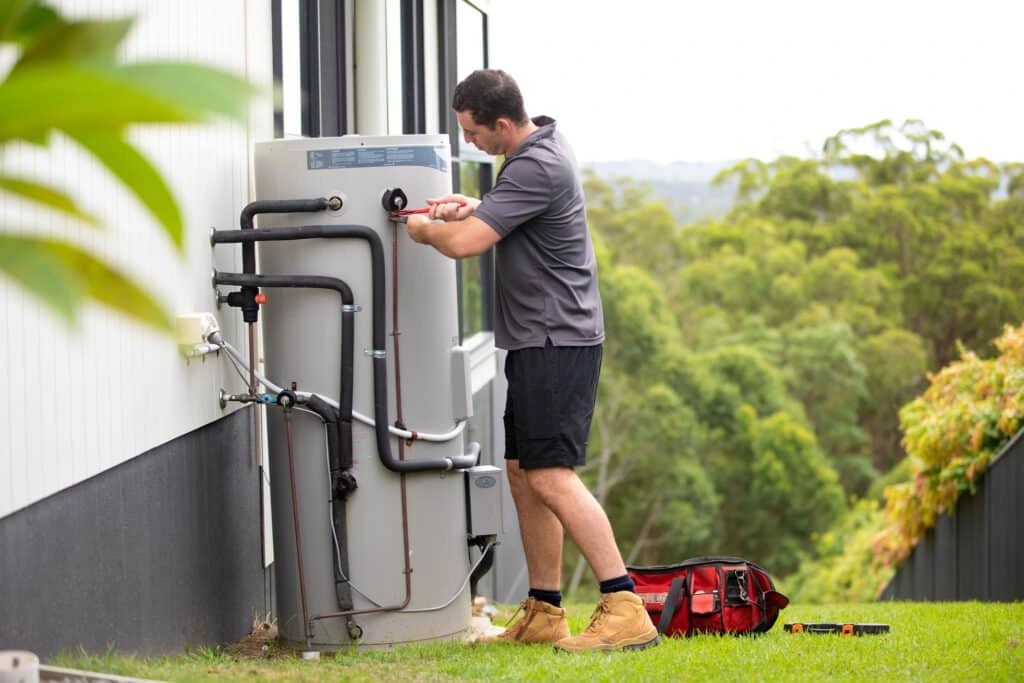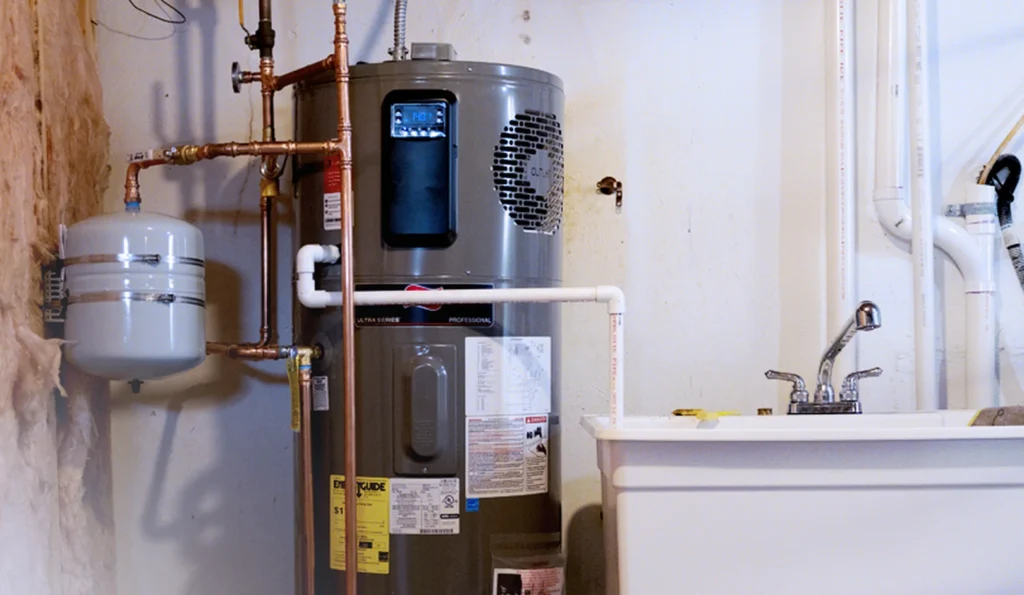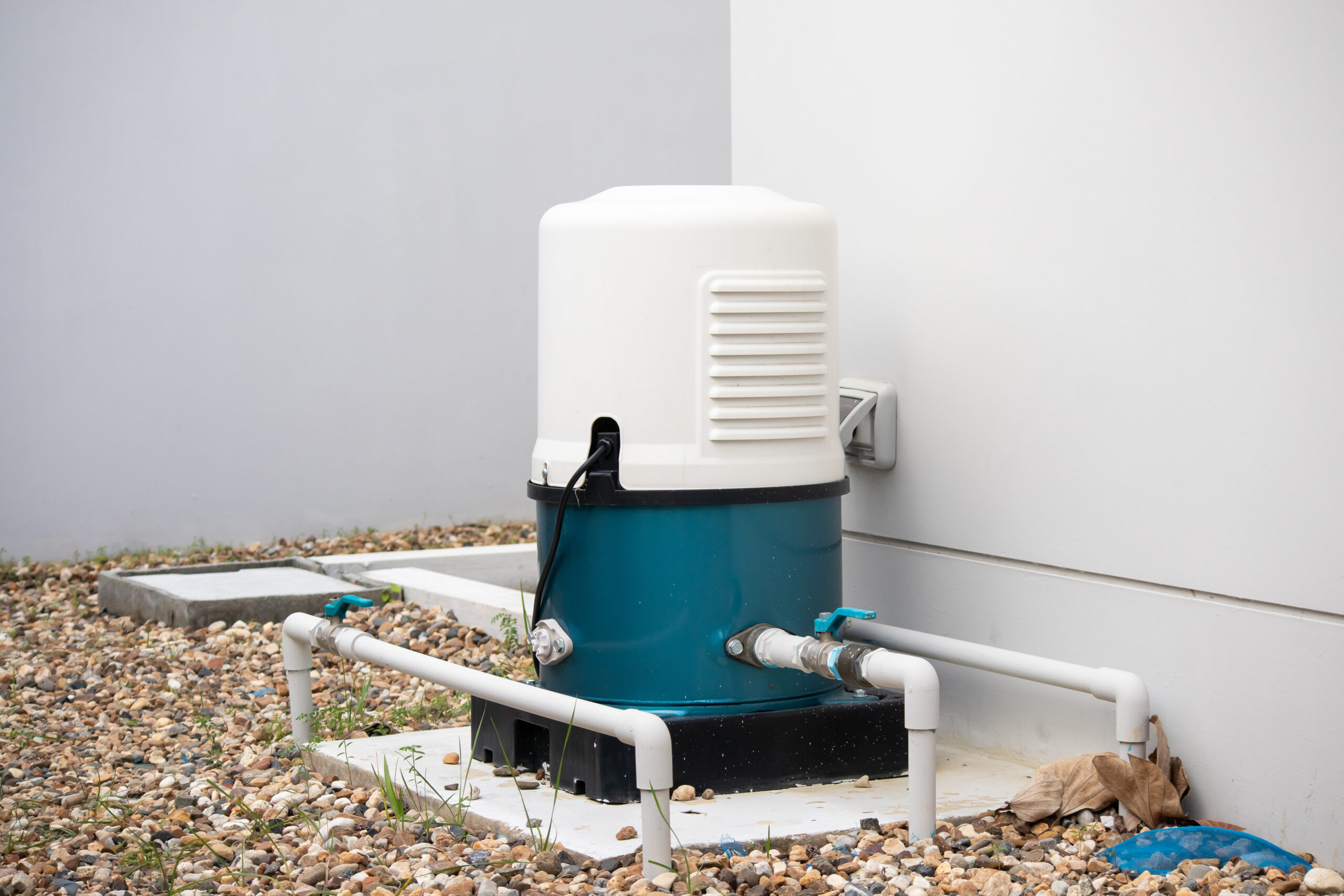You know the feeling: you wake up on a crisp Orange morning, turn on the shower… and get a nasty blast of cold water. Ugh. Our Hot Water Systems are the unsung heroes of home comfort, working around the clock so you can enjoy that steamy morning shower or wash dishes without freezing.
When yours starts acting up, the big question hits: should you fix it, or is it time for a brand-new system? In this guide, we’ll walk you through the warning signs, lifespans, and costs, so you can decide confidently. Think of this as a chat over the kitchen bench – I’ll share what I’ve learned (and what the experts say) about keeping your Orange home’s hot water flowing.
Hot water is a huge part of daily life – and your energy bill. The Australian government notes that water heating can account for 15–30% of a household’s energy use. In Orange’s cool winters, we rely on hot showers and clean, hot dishes even more. A failing system isn’t just an inconvenience; it can spike your bills and even damage floors if it leaks. The good news? If you catch the problem early, a simple repair might do. But if that heater is pushing 10+ years old or has chronic issues, replacing it with a modern, efficient unit could actually save money over time. Keep reading – we’ll cover the telltale signs of trouble, the typical lifespan of different systems, the pros and cons of electric vs gas vs solar vs heat pump systems, and smart tips for repair vs replacement.

Spotting the Red Flags: When Your Hot Water System Needs Attention
Before you book a plumber, watch for the warning signs that your hot water system might be in trouble. Many of these are easy to notice if you know what to look for:
- Little or No Hot Water: If your hot water runs out unusually fast or only dribbles out lukewarm, something’s up. It might be a failed heating element or thermostat (especially in electric hot water systems), or blocked burners in gas units. Consistent lukewarm water is a classic cue.
- Strange Noises: Banging, rumbling, or hissing sounds from the tank often mean sediment buildup at the bottom or in gas burners. Over time, sediment hardens, and the noises intensify. I once had a heater that sounded like a tiny steam train—a clear sign it needed flushing.
- Rusty or Discoloured Water: Water that looks orange or brown is a red alert for most hot water systems. It usually means the tank’s interior is corroding, often because the sacrificial anode has worn out. Ignore this, and the tank could start leaking soon. Experts say rusty water is a surefire sign your system is near the end of its life.
- Leaks or Pooling Water: Any dripping at the base of the heater is serious. A leak in the tank itself almost always means it’s time for a replacement. If you spot water pooling around the unit or moisture on the tank’s side, don’t just mop it up—call a professional immediately.
- Pilot Light or Ignition Trouble (Gas Units): For gas hot water systems, if the pilot light or burner keeps going out—or you smell gas—turn it off and get it checked. These issues often indicate clogged vents or failing components.
- High Energy Bills: A sudden jump in your gas or electricity bill can be a clue. As hot water systems age and efficiency drops, they use more energy to produce the same amount of hot water.
Catching these issues early can save you from a cold-shower crisis. If you notice any of the above—especially rusty water or leaks—it’s time to call a licensed plumber. They can quickly diagnose whether it’s a simple fix (like replacing a valve or anode) or a sign that a full replacement is on the horizon.
How Long Can You Expect Your System to Last?
When it comes to home comfort in Orange, Hot Water Systems are like the quiet, dependable roommates we hardly notice—until they start misbehaving. Most homeowners are surprised to learn that these systems have a lifespan, and planning ahead can save you from that dreaded cold-shower wake-up call. On average, a hot water system lasts 8 to 15 years, but the exact lifespan depends on the system type, local water quality, and how well you’ve maintained it.
Here’s a breakdown of the most common systems and how long you can count on them:
- Electric Storage Hot Water Systems (10–15 years): These are the classic tanks you’ll find in many Orange homes. They store water in an insulated tank and heat it with electric elements. If you flush the tank yearly and replace the sacrificial anode rod every few years, they can easily reach 15 years. Ignore them, though, and sediment buildup will shorten their life.
- Gas Storage Heaters (8–12 years): Gas systems heat water quickly and are great for chilly Central West mornings. But because their burners and flues produce corrosive gases, they tend to wear out faster than electric models. A well-maintained unit might reach 12 years, but rust or leaks can end it sooner.
- Continuous-Flow (Instantaneous) Gas Heaters (15–20+ years): These tankless heroes heat water only when you turn on a tap, so there’s no standing water to corrode a tank. With regular servicing, many last 20 years or more—perfect for families who love “endless” hot showers.
- Solar Hot Water Systems (15–20+ years): With their roof-mounted collectors and storage tanks, solar systems are the marathon runners of the water-heating world. In sunny Orange, panels can last decades, while the tank lasts as long as other storage types. Bonus: most come with a gas or electric booster for cloudy days.
- Heat Pump Hot Water Systems (10+ years): These energy-saving units pull warmth from the air to heat your water. They have fewer internal heating elements, which often means fewer failures. With proper care and a sheltered installation spot, they can serve your home for a decade or more.
Keep in mind that these are averages, not promises. Hard water, which is common in parts of Orange, can drastically reduce the lifespan of any hot water system by causing scale buildup and corrosion. Regular maintenance is the secret weapon here: flushing the tank once or twice a year, replacing the anode rod, and checking valves can add years to your system’s life.
As a rule of thumb, once your hot water system hits 10 years, it’s smart to start thinking ahead. Even if it hasn’t failed yet, efficiency often drops with age, and energy bills can quietly creep upward. A planned replacement beats an emergency one any day—especially when it’s the middle of winter and the last thing you want is a freezing surprise in the shower.
Types of Hot Water Systems in Orange
Not all hot water setups are created equal. Orange homeowners commonly use a few main types:
- Electric Storage Heater: The classic electric tank. Cheapest to buy and install, but often the most expensive to run (unless you switch to off-peak power). Good for homes with no gas line. Pros: simple, reliable, available everywhere. Cons: higher running costs (electricity is pricier than gas).
- Gas Storage Heater: A tank heated by natural gas or LPG. Costs a bit more to install, but gas can be cheaper per kWh than electricity. Gas heats water quickly – great for cold Orange mornings. Lifespan ~8–12 years. Cons: less eco-friendly (burns fossil fuel), still uses a tank (so standby heat loss).
- Instantaneous (Continuous-Flow) Gas: No tank – gas burns on demand. These are compact and give “endless” hot water since there’s no tank to empty. Expensive to purchase/fit at first, but they run very efficiently and can last 15–20 years. Because there’s no stored water, there’s no tank rusting, making rust-brown water a non-issue. Downsides: they need a strong gas supply and can be pricey up front.
- Solar Hot Water System: Roof-mounted solar collectors (flat-panel or evacuated tubes) heat a storage tank (often with an electric or gas booster). Solar systems cost the most to set up ($3,000–$7,000+) but use free sunlight to heat water. In Orange’s sunny climate you’ll save a lot on bills: running costs can be as low as ~$65–$365/year. They’re eco-friendly (huge CO₂ savings) and excellent for long-term owners. On cloudy days or nights, the booster kicks in (gas or electric).
- Heat Pump Water Heater: Like a fridge in reverse. A fan pulls in air and runs it over a compressor, which transfers heat into the water in a tank. Very efficient – uses roughly 25–30% of the electricity of a standard electric heater (or “up to 70% less”). This means big bill savings in Orange’s mild climate. Installation costs $2,500–$5,000, but government incentives and long-term savings make them attractive. They work best in a semi-warm spot (since they grab heat from the air – performance dips in freezing temps).
To make this clearer, here’s a comparison table summarizing key points:
| System Type | Typical Lifespan | Install Cost (AUD) | Annual Running Cost | Notes/Pros & Cons |
|---|---|---|---|---|
| Electric (Storage) | ~10–15 years | $450–$1,800 | ~$700–$925 | Pros: Lowest purchase cost; easy install. Cons: Expensive to run, limited by tank size. |
| Gas (Storage Tank) | ~8–12 years | $700–$1,900 | ~$295–$665 | Pros: Heats fast, runs cheaper than electric. Cons: Emits CO₂, still has standby losses. |
| Gas (Instantaneous) | ~15–20+ years | ~$1,000–$2,500 | ~$295–$665 (similar) | Pros: Endless hot water, very energy-efficient, no tank rust. Cons: Higher upfront, needs strong gas supply. |
| Solar (Heated Tank) | 15–20+ years (collectors) | $3,000–$7,000 | ~$65–$365 | Pros: Huge energy/bill savings, eco-friendly. Cons: Expensive to install, needs sunlight (booster for cloudy days). |
| Heat Pump | 10+ years | $2,500–$5,000 | Lowest (uses ~30% energy) | Pros: Very efficient (uses ~70% less power), lower bills. Cons: Higher initial cost, best in moderate climates (needs airflow). |
Each home is different. For example, a medium family might pick a 270–315L tank of one of the above, or a 26L continuous-flow unit. If space is tight or gas isn’t available, electric or heat pump units fit under a sink or in a cupboard. Gas systems shine in winter performance (Orange nights can get cold!), while solar and heat pumps excel in cutting bills. YourHome.gov.au notes that choosing the right hot water system can significantly reduce household energy use and costs.

Repair vs Replace: Making the Call
So, repair or replace? Here’s the quick-and-dirty rule-of-thumb many tradies use: under 10 years old and it’s a simple fix → repair; older or major issues → replace. Let’s unpack that:
- Repair is reasonable when… Your heater is relatively young (say under 10 years) and it’s a minor issue. For example, replacing a heating element, thermostat, anode rod, or pressure valve can often restore a system to like-new condition. Licensed plumbers recommend fixing things like valves or sensors if everything else is fine. For minor repairs, an emergency call-out might cost around $150–$200 plus parts, which is cheap compared to a new system. If the unit’s warranty is still valid, by all means get it serviced.
- Replace might be wiser when… The unit is old (10+ years), has multiple issues, or the repair quote is very high. For instance, if your tank has developed cracks, or the gas burner is failing repeatedly, you’re just prolonging the headache. Midwest Leak Experts puts it bluntly: if a repair bill is more than ~50% of a new system’s cost (or the heater is old and inefficient), getting a new one is usually the smarter investment. This “50% rule” helps avoid throwing good money after bad. Also, some fixes simply cannot be done on a storage tank (e.g. a welded crack or massive corrosion); in such cases, you must replace to avoid flooding or even a safety hazard. Home Depot also warns: any leaking water heater should be replaced immediately to prevent a burst.
- Energy savings factor: Don’t forget the big efficiency gains of new models. Flowtec Plumbing reminds Orange homeowners that installing a modern unit can actually save you money over time, because new tanks and heat pump or solar systems use much less energy to heat the same amount of water. For example, switching from an old electric tank to a heat pump could cut your hot water power use by ~70%. If your current system is gas, moving to a continuous-flow model or adding solar can trim bills too. So weigh the long-term bill savings against the upfront cost. Sometimes a new unit pays for itself in lower bills after a few years.
- Local factors in Orange: Here in the Central West, winters get chilly but not extreme. A solar system will still work well for most of the year, especially on sunny days. Likewise, gas is plentiful in Orange (natural gas is piped to many suburbs), so gas systems are common. If your home isn’t on gas, you’d lean electric or heat pump. Also consider local installer experience – many Orange plumbers have favorite brands (Rheem, Dux, Rinnai, Stiebel Eltron, etc.) and rebates.
- Your peace of mind: Finally, think about convenience. A brand-new continuous-flow gas heater gives endless hot water and often a 15+ year lifespan, meaning “buy it and forget it” for a long time. On the other hand, if you just replace a tiny part on an old tank, that tank may die soon after. If you’re tired of cold showers or quick fixes, that’s a nudge to invest in a new system.
In short: Check the age (over ~10 years? lean toward replace), estimate costs (compare repair quote vs new unit), and consider efficiency. You can also get a plumber’s opinion. Many plumbing services in Orange offer free quotes or service calls; they’ll audit your system, recommend solutions, and even quote on new installation if needed. Just make sure they’re licensed gasfitters/plumbers – only those can legally touch water heaters here.
Conclusion
Deciding whether to repair or replace your hot water systems in Orange can feel tricky, but the warning signs usually point you in the right direction. If your hot water system is showing leaks, rusty water, fluctuating temperatures, or frequent breakdowns, it’s important to act quickly to prevent bigger problems—or that dreaded surprise cold shower.
For systems over 10 years old, replacement is often the most practical and cost-effective choice, particularly if energy efficiency has dropped or repair calls are becoming routine. Investing in a modern hot water system—like a heat pump, solar unit, or high-efficiency gas system—can not only give you reliable performance but also lower long-term running costs, which is a big win during Orange’s chilly winter mornings.
The key to making a confident decision is understanding the typical lifespan and efficiency of different hot water systems. By comparing repair costs, energy usage, and long-term benefits, you can choose the option that best suits your household needs and budget.
Finally, remember that regular maintenance—such as flushing tanks, checking valves, and replacing the anode rod—can extend the life of your system and help you avoid sudden breakdowns. A well-maintained hot water system keeps your home running smoothly, your bills manageable, and your mornings comfortably warm.
Frequently Asked Questions
How long do hot water systems typically last?
Most storage hot water systems last about 8–12 years (gas tanks) or 10–15 years (electric tanks). Continuous-flow or instant gas models can exceed 15–20 years because they have no tank to corrode. Regular maintenance (flushing, anode checks) can push these limits higher.
How much does it cost to replace a hot water system?
Expect roughly $1,000–$2,500+ AUD for a new system (installed). The range depends on type: electric systems are on the low end, solar or continuous-flow gas on the high end. Installation complexity, tank size, and extra fittings (like new pipes or valves) can add to the bill.
Should I repair or replace my hot water heater?
If your heater is under about 10 years old and the fix is minor (a heating element, valve, etc.), a repair can make sense. But if it’s older, shows multiple problems (leaks, rust), or the repair quote is over ~50% of a new unit’s cost, replacement is usually the smarter choice.
Which hot water system is most energy-efficient?
Solar and heat pump systems typically save the most energy. Solar hot water uses free sunlight (running costs as low as ~$65–$365/yr), while heat pumps use about 70% less electricity than a standard electric heater. Both can greatly cut your hot water bills, though they cost more upfront.

